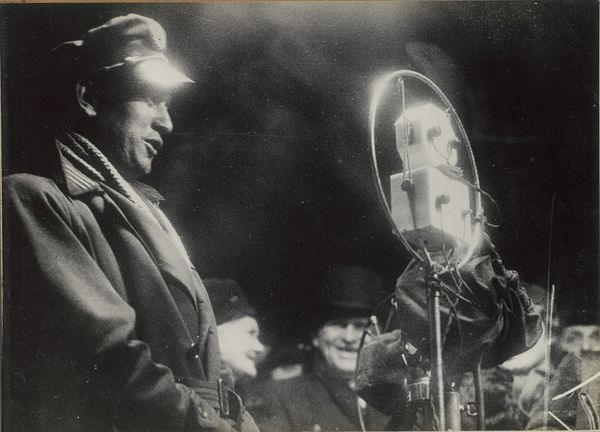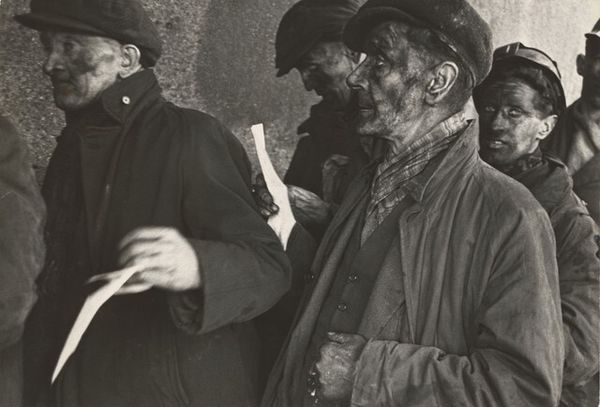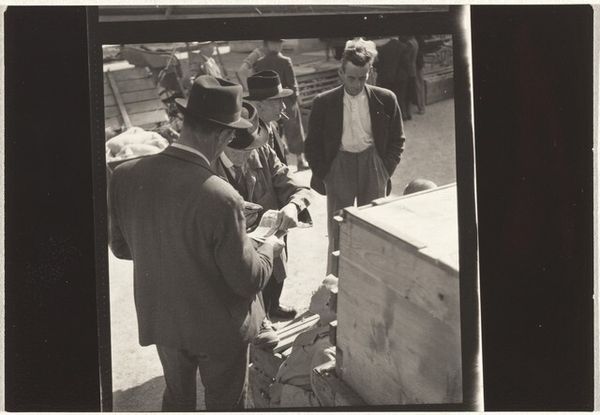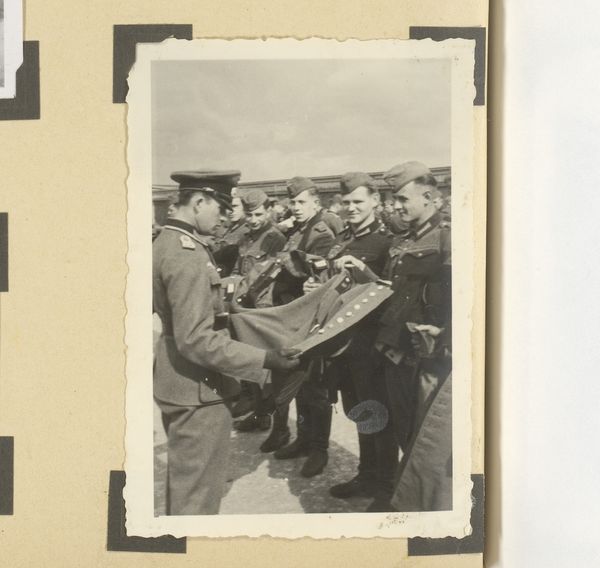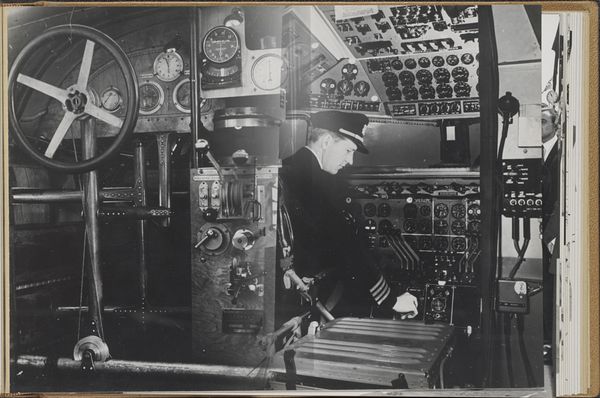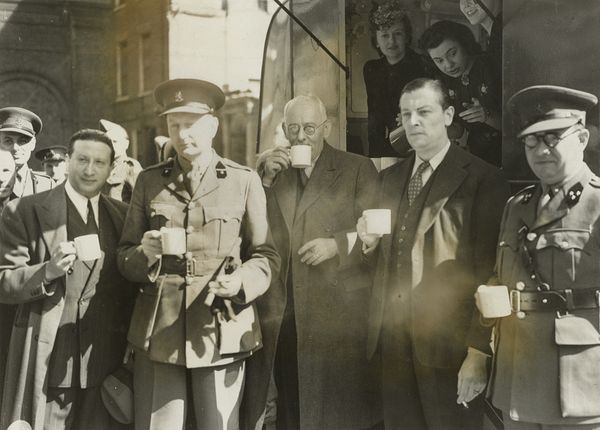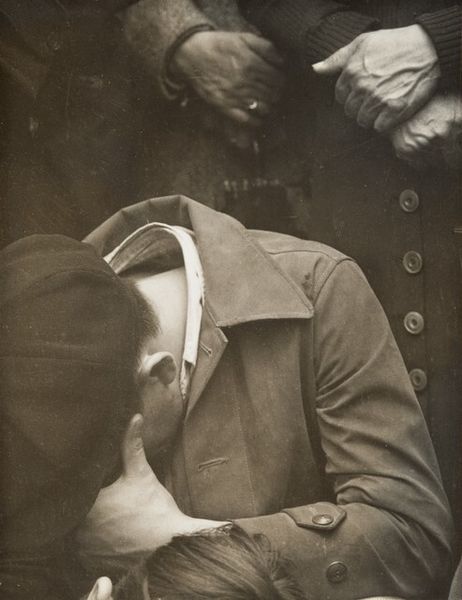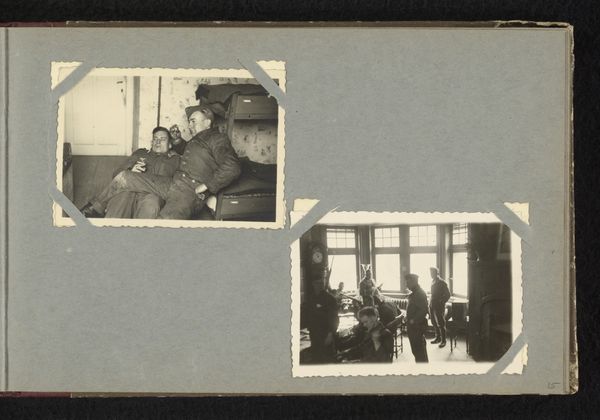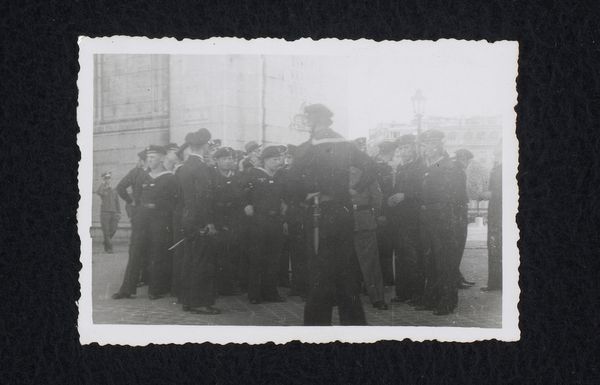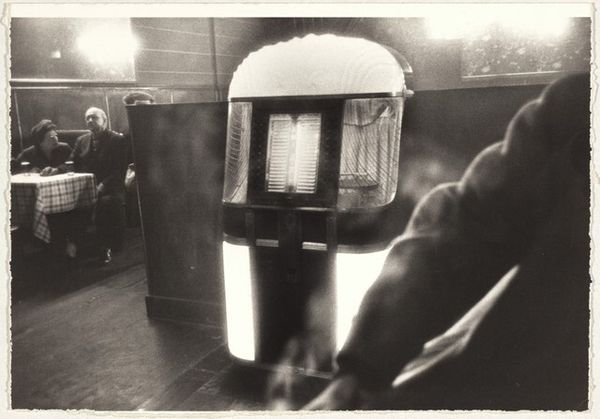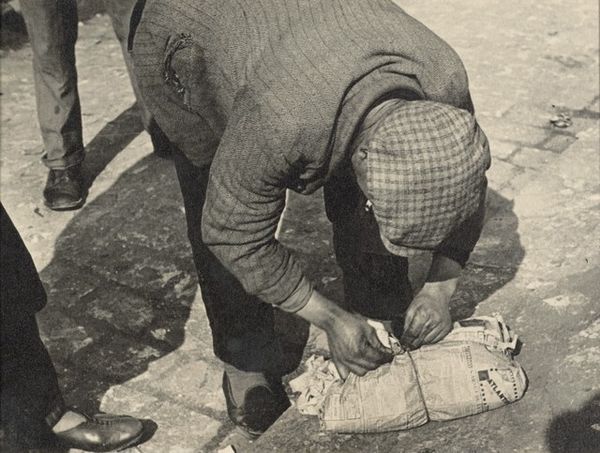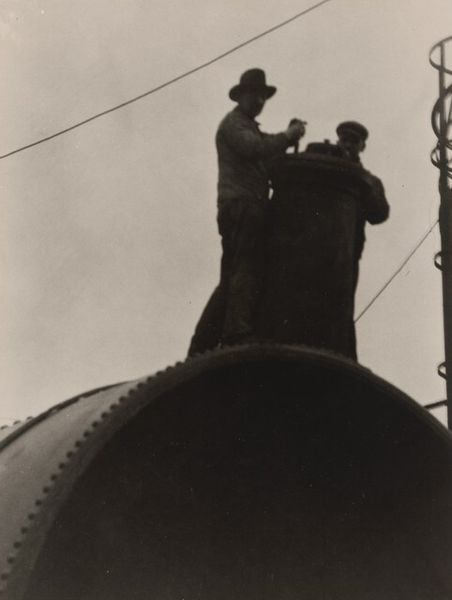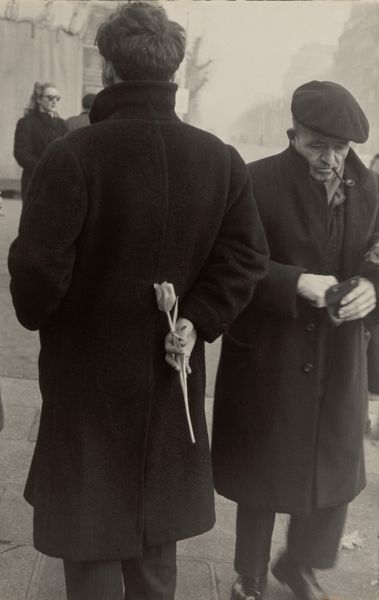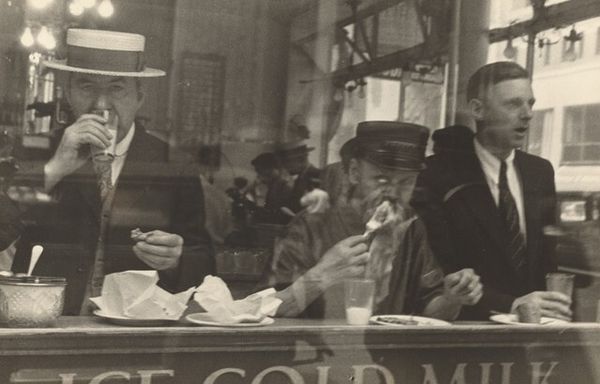
Dimensions: image: 22.7 × 34 cm (8 15/16 × 13 3/8 in.)
Copyright: National Gallery of Art: CC0 1.0
Curator: The texture, the starkness—it just breathes with stories untold, doesn't it? I mean, look at "Wales," snapped by Robert Frank in '53. Gelatin silver print, like a memory surfacing in monochrome. Editor: It's bleak. Utterly bleak. Like staring into a Welsh winter. You've got that harsh, industrial pallor. And, from what I can gather, this gelatin silver printing process was fairly accessible post-war, but achieving *this* level of grit speaks volumes about Frank’s vision. Curator: Exactly! It’s not just *seeing*, it’s *feeling*. The way the light catches the smoke from that cigarette... that’s not accidental. Frank isn’t merely recording, he's imbuing the image with a narrative that resonates with quiet defiance. Editor: I read that defiance materially. Cigarettes weren't just cigarettes. Post-war, they were intertwined with ideas around labour and reward, stress relief for these working class figures… even resistance. Plus, think about the equipment itself: his handheld Leica. It's a democratizing tool allowing unprecedented candid shots. It really reframed who could produce an "artistic" image. Curator: And within that reframing… that handheld, immediate act...comes a vulnerable portrayal. To me the image hints at something deeply ingrained in our human experience: the shared quiet, our collective contemplations. Editor: I suppose what I see in terms of Robert Frank's 'Wales' is a calculated document. Every crease in their workwear tells you a little more about what exactly they do to earn a living. Frank’s choices reveal just as much about societal structure as anything inherent in that "vulnerable portrayal" you talked about. Curator: Perhaps the material constraints shaped his process into raw poetics? Like stone sculpted with intention. A narrative etched not just onto paper, but directly into our collective psyche. It transcends its medium, no? Editor: And its moment, let's hope. But remembering where things come from makes the emotional hit more real. I see art history less like some grand narrative, and more about remembering the means, remembering the grit that formed something out of nothing. Curator: Fair. Material or ephemeral, though, it stays with you. "Wales" whispers a kind of unspoken history; one crafted from quiet moments, revealed only when we slow enough to really look.
Comments
No comments
Be the first to comment and join the conversation on the ultimate creative platform.
